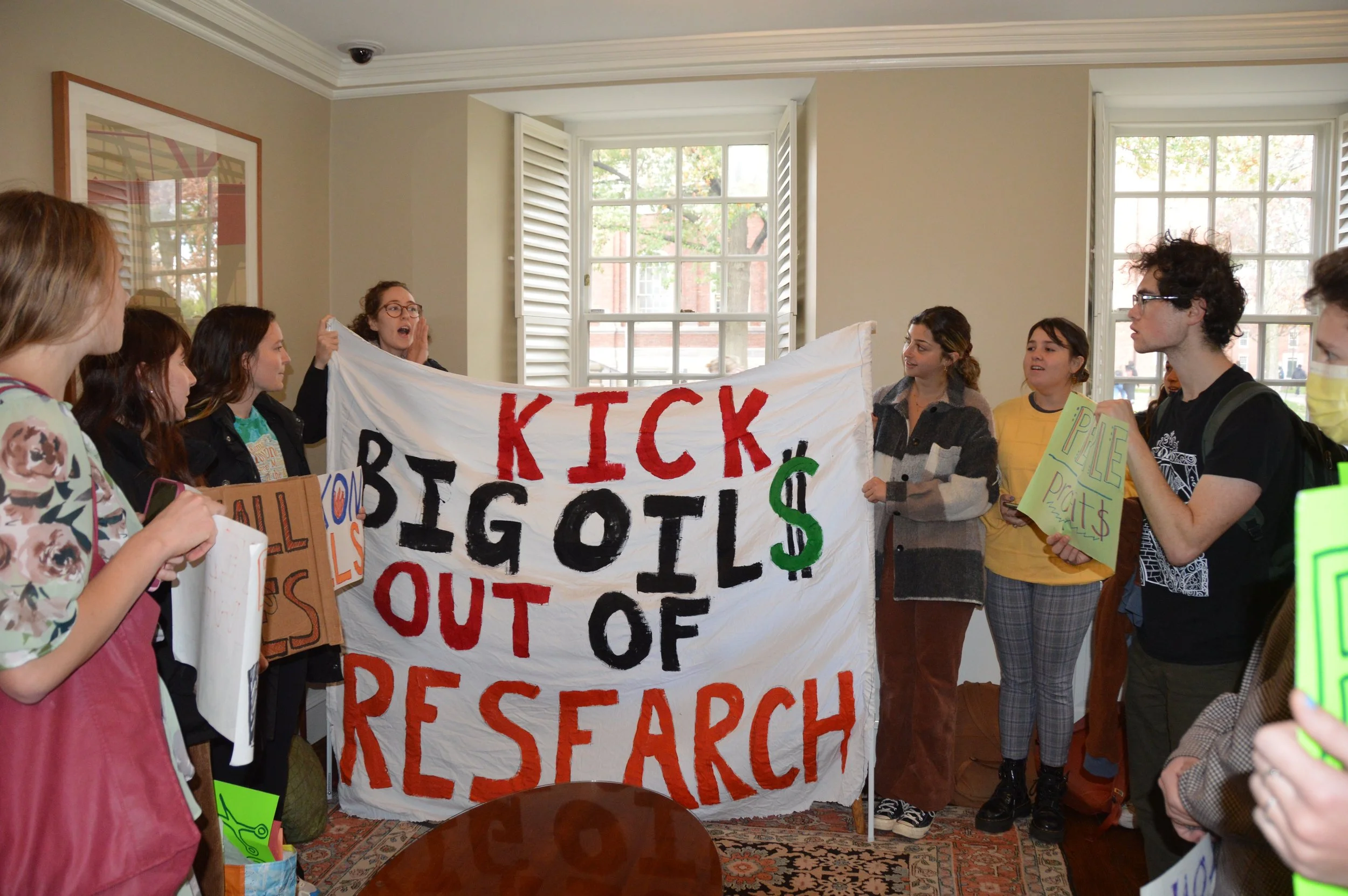Reflections on the Fossil Free Research Movement & What Comes Next
Reflections from Emma Blankstein, Sunrise Brown Hub Coordinator & Fossil Free Research Coordinator at CCN.
Cambridge students occupy the BP Institute in 2022
In 2022, Campus Climate Network was founded as Fossil Free Research (FFR) on the belief that university research, especially research about climate change, should not be funded by the fossil fuel industry. Students refused to stand by while an industry whose entire business model rests on preventing climate action used their universities to put a stamp of credibility on their propaganda. In the years since, FFR has remained an integral part of CCN’s work, and the movement has made significant gains. Students in CCN have uncovered hundreds of millions of dollars in financial ties between universities and the fossil fuel industry that have been published in 20 student-written reports, and 18 of our member groups are currently running FFR campaigns on their campuses. In the fall of 2024, the University of Toronto’s School of Environment passed a policy refusing to take funding from the fossil fuel industry, making it the first North American university to make such a commitment. This win was the direct result of organizing efforts by CCN member group Climate Justice U of T. Many other campuses have made commitments to increased funding transparency and placed additional limitations and oversight on partnerships with the fossil fuel industry, and several schools are currently undergoing committee processes or faculty votes to decide whether to enact FFR policies.
While it is undoubtedly an exciting time for FFR, the movement is also at a crossroads. Running an FFR Campaign in the 2025-26 school year is likely going to look very different than it has in the past. Before this year, university research funding was an issue seldom on the minds of people besides researchers and activists. Organizers on campus running FFR campaigns have had to spend significant amounts of time educating faculty, administrators, and their fellow students about the importance of where university research funding comes from. That is no longer the case. The Trump administration’s cuts to research funding have highlighted the urgent need for universities to have research funding that comes with no strings attached in order to maintain freedom from corporate and political influences. However, we face an uphill battle, as university administrations fold to Trump and researchers become increasingly anxious about cutting off potential funding sources, no matter how undesirable those sources are. It is our job as the student movement to draw connections for folks about how the industry capture and corporatization of universities has made them more vulnerable to Trump’s current attacks, and how kicking Big Oil off campus is a crucial first step in freeing our universities from oligarchy and fascism. Corporate research funding, especially from the fossil fuel industry, will not save us from attacks on academic freedom.
Harvard students taking action for Fossil Free Research in Fall 2022.
So while we look forward, it is also important to reflect on FFR thus far. One of CCN’s core values is a commitment to preserving movement memory. The FFR campaigns many of us have looked to for guidance were started by students who have now graduated, and it is our job as the current generation of students running FFR campaigns to ensure that their knowledge is not lost. The FFR Campaign Guide documents this knowledge in a centralized location to ensure it can be easily shared across different campuses and generations of students. Compiled over the course of the spring 2025 semester, the guide addresses common themes that have come up in 1:1 meetings with and group discussions among students running FFR campaigns; it is an attempt to answer some of the most pressing questions facing FFR right now, so that student organizers can build a movement that can meet this moment.



